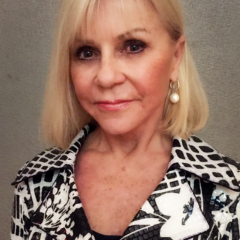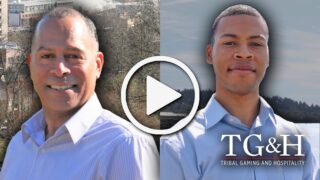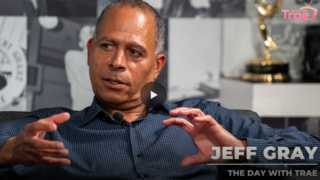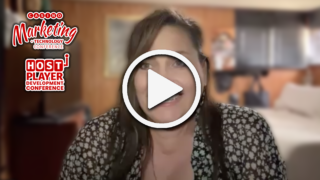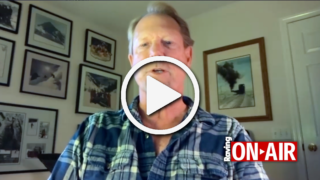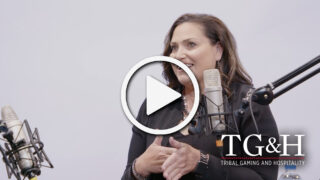
Why Northern Quest Resort & Casino’s emails to guests impressed me
One of the first casinos nationwide to reopen after the coronavirus closings set a best practices protocol for guest communications during these challenging times. Northern Quest Resort & Casino, a Kalispel Tribal Enterprise in Airway Heights, WA, was in uncharted territory in creating a guest communications plan from pre-closing to post-reopening.
Northern Quest Resort & Casino has been open to sharing their learning throughout this process. From the operations side, please click here to read our wrap up from a round table discussion we had with their leadership team. You can also watch an interview with Northern Quest Resort & Casino we did with them on opening day.
Of the many emails I receive from being on casino mail lists, Northern Quest Resort & Casino stood out and above. To find out the strategies and tools used in communications to their guests, Raving Senior Partner – Market Research, Deb Hilgeman Ph.d. , interviewed Julie Holland, Director of Public Relations and Communications for the Kalispel Tribal Economic Authority.
The many different components of the communications program can be a resource for other casinos. The messages sent by Northern Quest to its guests, and the detailed lists by department of the “new normal” at their property, can be found at this link: https://www.northernquest.com/covid-19-information
DEB: What were the key objectives in your guest communication strategy regarding the closing/reopening?
NQ: Like others around the country, the decision to close our doors came within a matter of hours, not days. There was so much uncertainty early on. Our first communications were driven by a need to communicate operational facts with a focus on the health and safety of our guests and team members. Once our doors were closed (March 16), the uncertainty about COVID-19 continued. So many new facts were coming out every day across the nation. What started as a two-week shutdown became the potential for more.
The Tribe’s commitment to flattening the curve in Washington State gave us the direction we needed to base our communications on three important things from that point on: frequency, transparency and authenticity.
DEB: How would you describe the tone of your messaging? What were you trying to achieve?
NQ: As large employers, generators of critical revenue for Tribal governments and hubs for entertainment and tourism, our guests and team members want to be reassured there’s a plan for our casino resorts, too. Our direct guest communications are the one way we can let our loyal players know that we miss them, we care about them and we haven’t forgotten them. I don’t think it’s a negative for us to acknowledge in our communications that these are uncertain times. There is no playbook for what any of us are going through. When your communications can convey that you care, inform them that you’re meeting around the clock to establish new plans using the latest information and remind them that there are better times ahead, people feel comforted. Even if we tell them things are going to be very different when we reopen, we’re taking them along for the ride with us and they feel included in the journey.
DEB: What were the different steps you took in communicating with guests?
NQ: As I mentioned earlier, our messaging primarily focuses on frequency, transparency and authenticity. At Northern Quest, our Core Purpose is to make everyone feel special. Everyone is welcome; we choose excellence every day and we take pride in what we do. Our Core Purpose and Core Values serve as the foundation for who we are as an organization and how we treat our guests and team members. We call it Kalispel Hospitality.
In a situation like this, the uncertainty of the circumstances doesn’t change who we are. Our messaging comes from that care for people, both guests and team members. Our focus is to find the core of each message we’re trying to communicate and tweak it for multiple audiences. Honestly, this was one of the most complex communications campaigns I’ve ever planned. We have been writing for our guests through three different channels, including direct email, website updates, and social media, as well as writing two different versions of team member communications – one version for our essential team members and another for those who were furloughed or laid off.
For our guest communications, the need to inform them that we were closing and that we were reopening are obvious. It was the seven weeks in between that were tougher. How often should you communicate when you really don’t have anything new to tell them? We didn’t have a hard and fast rule. Most of the time, we went with our gut. It ended up being about ten days between emails and updated messaging for our guests. Ultimately, it came down to our desire to touch base with them and let them know we were thinking of them, even if we didn’t have much to say. Just the act of connecting with our guests helped to reassure them that they weren’t going through this crazy time alone.
DEB: How well do you think you did in meeting the objectives and what, if anything, would you have done differently?
NQ: I’m extremely proud of the work we’ve done to continue consistent communications with all of our audiences. This was a true team effort under extraordinary circumstances. Because I’m Type A and usually my own worst critic, there are things I wish I would have known when I drafted messages early on, but overall, I believe we met our objectives. We have remained true to who we are as an organization, sent regular updates to all of our audiences and we’ve been transparent about what we know and don’t know. All of that was done in our authentic brand voice, with a sincerity and sense of genuine caring.
DEB: What has the feedback been from guests who received the messaging?
NQ: The majority of the feedback we have received from our guests has been very positive. While we aren’t always able to reach out to each guest with a personal phone call or a hand-written note, we certainly can do our best to use the platforms we have available to keep in touch and let them know we’re thinking about them. All of the points of contact help ensure a high level of trust that our team will continue to look out for their health and safety after reopening.
DEB: What advice would you give other casinos that are still in limbo as far as when they can reopen, and how to reassure guests that it’s safe to come back?
NQ: Ultimately, our job in public relations is to put the Tribe and its businesses in the most positive light, while sharing their story and continuing to help build relationships of trust with our valued guests. I think it’s important to acknowledge that these are uncertain times and to admit that we don’t know everything. We need to be honest, describe what changes we are making to reassure our guests that we care about their health and safety and be flexible enough to listen and learn every single day during these rapidly changing times. We know that operational decisions are difficult right now because there is no proven “industry standard.” We know that people have very strong opinions about the changes happening in our world and we know that we’re communicating to an adult audience that will make its own decisions. At Northern Quest, we will continue to focus on monitoring the data in our region, as well as communicating frequently, transparently and with authenticity to all of our audiences. In the end, our guests will have to choose whether or not they’re ready to venture out of isolation and experience the changes our new post-COVID-19 world will bring.

